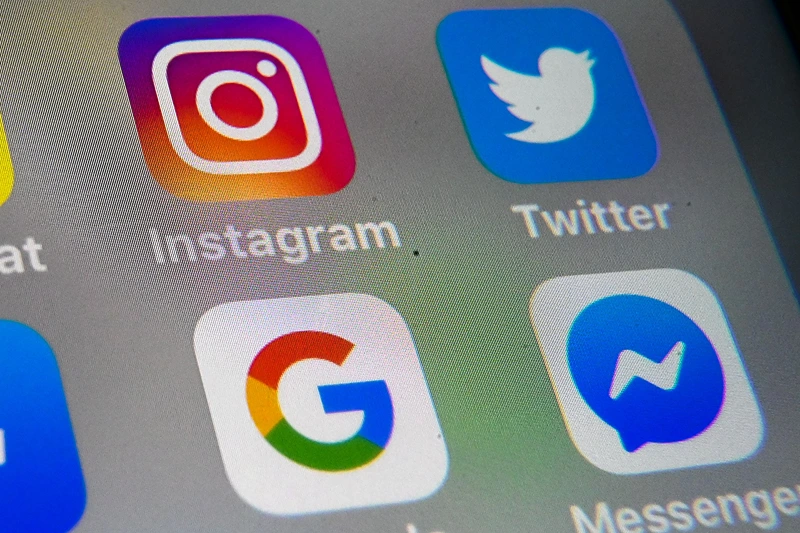
OAN’s Brooke Mallory
5:48 PM – Thursday, May 18, 2023
The Supreme Court ruled unanimously on Thursday in favor of Google and Twitter in two instances alleging social media culpability for international terror incidents.
The relatives of the victims of an ISIS attack on the Reina nightclub in Istanbul, Turkey, in 2017 did not sufficiently demonstrate that the online platforms had “aided and abetted” the terrorists in violation of federal law, according to Justice Clarence Thomas in an opinion favoring the social media platform.
“Plaintiffs have failed to allege that defendants intentionally provided any substantial aid to the Reina attack or otherwise consciously participating in the Reina attack, much less that defendants so pervasively and systemically assisted ISIS as to render them liable for every ISIS attack,” Thomas wrote.
Advertisement
Similar reasoning was used by the court in an unsigned per curiam ruling in the Google lawsuit, which was initiated by the family of the lone American fatally shot in the 2015 Paris terrorist attacks, which were carried out by ISIS extremists who had put materials on Google’s video platform YouTube.
In both instances, the relatives of the victims claimed that the social media firms had contributed to the attacks inadvertently by neglecting to remove extremist content from their platforms, which may have facilitated the radicalization and recruiting of terrorists.
Anyone who “aids and abets by knowingly providing substantial assistance” to a terrorist in committing an act of violence is subject to civil litigation under federal anti-terrorism legislation.
However, Justice Thomas ruled that the standard had not been reached in a decision that was very specific.
“The fact that some bad actors took advantage of these platforms is insufficient to state a claim that defendants knowingly gave substantial assistance and thereby aided and abetted those wrongdoers’ acts,” the justice wrote.
The family of Noehmi Gonzalez, a 23-year-old college student from California who was killed during the November 2015 Paris attacks, asked the court to revoke the broad legal immunity that internet service providers currently take advantage of under Section 230 of the Communications Decency Act for material posted by other users, such as messages, images, and videos.
However, the court chose to avoid the subject by declining to comment on the landmark law’s reach.
The rulings represent a significant success for Internet businesses who had previously cautioned that broadening the extent of responsibility would completely change the internet as we know it.
“The Court correctly recognized the narrow posture of these cases and declined to rewrite a key tenet of U.S. Internet law, preserving free expression online and a thriving digital economy,” said Matthew Schruers, president of the Computer and Communications Industry Association. “No one wants to see extremist content on digital services, especially the services themselves, which are constantly vetting millions of pieces of content in real time to promote trust and safety and protect users, consistent with their terms of service.”
While the company is “reassured by this result,” Google general counsel Halimah DeLAine Prado told the press in a statement that the company would continue to develop strategies to “safeguard online free expression, combat harmful content, and support businesses and creators who benefit from the internet.”
Members of the Gonzalez family who were contacted by the press declined to comment on the case.
However, the justice added that the alleged aid would have to be “more direct, active and substantial” than simply giving the groups a place to post messages and videos, as is claimed in these cases. Thomas acknowledged that there may be circumstances in which a social media company could be held liable for some role in a terrorist act.
Some consumer activists and tech reformers desired that the Court would play a role in limiting the influence and power of social media corporations. That responsibility now rests more firmly with Congress.
“There is a policy question here of how we can continue to allow these social media companies to function. We don’t want them paralyzed by lawsuits but we also need to clamp down on some of the ways that terrorist groups can facilitate their recruitment,” said Asha Rangappa, a former FBI agent. “These companies are built to make money from advertising revenue, and they make advertising revenue by keeping people on their platforms and active. I think we need to change the incentives here to change the landscape.”
Senator Dick Durbin (D-Ill.), the chairman of the Senate Judiciary Committee, described the Court’s decision not to comment on Section 230 as “disappointing but unsurprising.”
“The Justices passed on their chance to clarify that Section 230 is not a get-out-of-jail-free card for online platforms when they cause harm,” Durbin said. “Enough is enough. Big Tech has woefully failed to regulate itself. Congress must step in, reform Section 230, and remove platforms’ blanket immunity from liability.”
Stay informed! Receive breaking news blasts directly to your inbox for free. Subscribe here. https://www.oann.com/alerts

